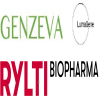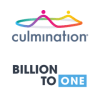In early November, a group of researchers in Chengdu, China injected a human with cells modified using the heralded, yet still unproven, gene-editing technique known as CRISPR-Cas9. The milestone, while a preliminary step in a tiny trial, marked the first known use of the technology in humans, according to the scientific journal Nature.
Another human study involving CRISPR, proposed by researchers at the University of Pennsylvania, is set to begin next year after securing a provisional green light from a federal panel in June.
These initial forays into human testing underscore the rapid emergence of CRISPR, which promises easier and more efficient editing of genes than other methods. In the U.S., the translation of the technology from the lab into the clinic will be led by a trio of Cambridge-based biotechs.
Editas Medicine, Intellia Therapeutics and CRISPR Therapeutics each debuted on public markets this year, braving a tough year for biotech companies. Despite middling stock performance and a contentious legal battle over intellectual property rights, the influx of IPO cash and a line-up of major partnerships has the three poised to advance CRISPR to the clinic.
An up-and-down year
Editas kicked off the year with an initial public offering in early February that netted the company nearly $98 million. Just three months later, Intellia followed suit with an oversubscribed $112 million (net) IPO. Even in a gloomy year for biotech overall, enthusiasm around the CRISPR companies was running high.
Yet as the biotech sector slumped further, those post-IPO gains reversed just as quickly. By October, the share price of both Editas and Intellia had sunk below original IPO levels.

The timing of the market retrench was unfortunate for CRISPR Therapeutics, which was forced to scale back plans for its own public offering. CRISPR ended up trimming the number of shares on offer and setting a price below its initially estimated range. When it debuted on markets later in October, CRISPR took home only $54 million plus another $35 million in a concurrent private placement from Bayer.
"We probably picked the worst week, or some of the worst weeks, this year to have our roadshow," said CRISPR Therapeutics CEO Rodger Novak.
Despite the setback, Novak believes his company to be well-capitalized and primed for growth, saying in an interview that the process is a marathon, not a sprint.
"I think we are really well positioned to achieve our R&D goals," Novak said. "From a financial consideration, I think we are in a very, very good spot."
A tide that lifts all ships?
Novak’s counterpart at Intellia, CEO Nessan Birmingham, expressed similar confidence in durable investor and industry enthusiasm for CRISPR.
In Birmingham’s view, interest is driven not just by the CRISPR technology itself, but also the emergence of a more supportive surrounding ecosystem. The cost of gene sequencing has come down rapidly, enabling greater understanding of the human genome — key for a technology which can edit single point mutations. At the same time, understanding of delivery systems has advanced, making it easier to bring CRISPR and Cas9, the so-called "molecular scissors," to the cells in need of fixing.
"[Investor enthusiasm] has been driven by the technology but also the ability to leverage all the work that has been done over the past one to two decades in our environment that positions [CRISPR] to move forward very rapidly and ultimately into the clinic," Birmingham said.
Certainly, all three CRISPR biotechs can fund R&D needs for quite some time. At the end of the third quarter, Intellia had $290 million in cash on its balance sheet, ahead of CRISPR Therapeutics’ $228 million and Editas’ only slightly more modest $200 million.
Adding in CRISPR Therapeutics' IPO raise, along with the related private placement from Bayer, brings its current total cash holdings to more than $300 million in cash.
Judge by the deals
One concern of investors, however, has been that a contentious patent battle over who holds the rights to key CRISPR intellectual property will hinder the CRISPR biotechs.
Intellia and CRISPR Therapeutics both license their foundational IP — either directly or indirectly — from the University of California, which has challenged patents awarded to the Broad Institute of MIT and Harvard. Editas, on the other hand, draws its IP from the Broad. Oral arguments in the dispute were heard before three U.S. Patent and Trademark Office judges earlier this month.
The legal back-and-forth naturally has raised concerns over future IP risks and costs. Yet Novak and Birmingham each said the risk is overblown, pointing to the quality of deals signed by their respective companies even after litigation had begun.
"As we look at it from a deal standpoint, it has not negatively impacted us as we see it," Birmingham said.
Novak expressed a similar view: "It hasn’t affected us at all. Look at the deals we have done. I think the numbers speak for themselves."
A yardstick of progress
Beyond indicating industry confidence, the partnering deals signed by each of the three companies are a useful yardstick by which to measure progress.
Take Intellia. When the biotech signed its collaboration deal with Novartis in December 2014, the company was just beginning to get off the ground. The Swiss pharma paid Intellia $10 million upfront to gain access to the CRISPR platform for potential applications in hematopoietic stem cells and CAR-Ts. If all goes perfectly, potential milestone payments for each target could reach as high as $230 million.
"That deal allowed us to move very rapidly into CAR-Ts, HSCs and also into in vivo applications," Birmingham said.
Importantly, it also secured access to a library of lipid nanoparticles, which Intellia uses as a delivery vehicle for its own in vivo programs.
Fast forward 16 months. In April 2016, Intellia locked down a second, much stronger, collaboration deal with Regeneron. This time, Intellia received $75 million upfront, along with potential milestones of $320 million for up to 10 targets each.
Intellia aims to leverage both deals as it grows.
"Each of the deals we have done has been very focused, when we think about the breadth of what we are partnering around, but have brought very specific tools and capabilities into Intellia that continues to allow us to be able to progress our own internal proprietary pipeline," said Birmingham.

Similarly, CRISPR Therapeutics has used partnering to jumpstart research and lay a foundation for internal programs. In a two-month span at the end of last year, CRISPR secured $105 million upfront in a collaboration with Vertex Pharmaceutical, and then announced an equally owned joint venture with Bayer.
Bayer put up $300 million to fund the venture, now dubbed Casebia Therapeutics, while CRISPR contributed its IP. CRISPR retains access to all technology developed by Casebia, helping the company maintain upside even in areas it may have lacked the bandwidth to tackle by itself.
Casebia will focus specifically on CRISPR-based approaches to blood disorders, blindness and heart disease, with initial programs aimed at hemophilia and severe combined immunodeficiency.
"We have picked very clear fields for CRISPR Therapeutics while others we say this is not necessarily totally in scope," explained Novak. "Nevertheless we wanted to make sure that we benefit from an early move into that field."
Editas isn’t sitting on its hands either. Led by CEO Katrine Bosley, the company inked a deal with CAR-T developer Juno Therapeutics in 2015 that netted it $25 million upfront. And Editas remains on track to start clinical work sometime next year in leber congenital amaurosis type 10, a rare inherited eye disease, Bosley said on a conference call in November.
The other two are close behind. CRISPR Therapeutics says it plans to file an application to begin clinical work for its beta-thalassemia program in late 2017. And Intellia expects the first investigational new drug application from its partnership with Novartis on hematopoietic stem cells will be submitted sometime in 2018.
With all three CRISPR biotechs flush with IPO cash and moving quickly toward the clinic, the next several years will be a key test of the technology’s utility in actually treating diseases.
Note: This article has been updated to reflect CRISPR Therapeutics' current cash holdings. The figures cited by the company in its latest Form 10Q did not include the cash raised from the initial public offering and private placement from Bayer. In addition, since the article was published, CRISPR Therapeutics realized the $15 million milestone from Bayer which is noted in the chart.






















